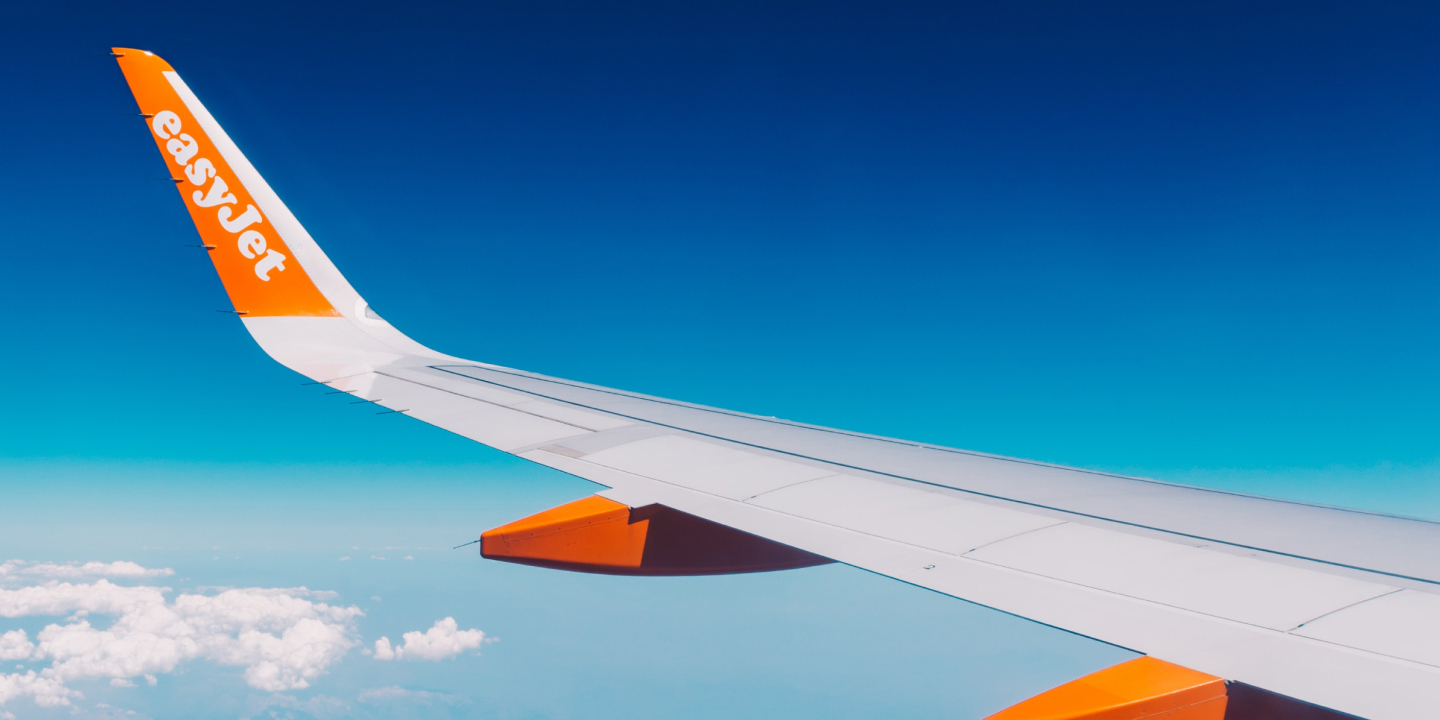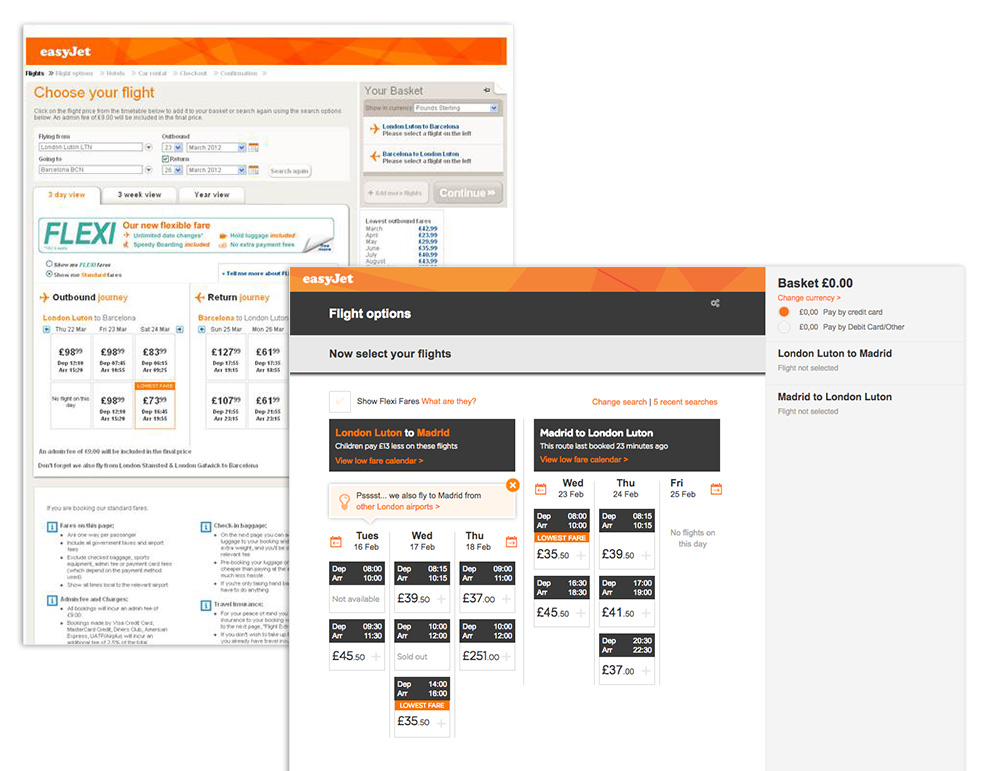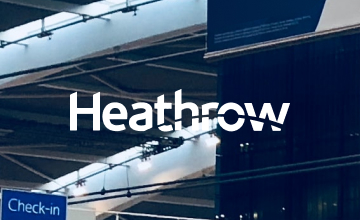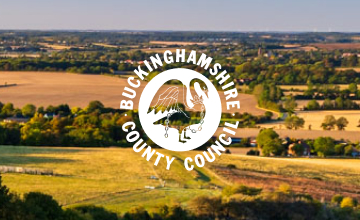
About our client
easyJet is the UK’s leading airline currently offering over 990 routes, over 130 airports, across 31 countries. Carrying over 80 Million passengers a year, they attract customers from all over the world.
What our client wanted
A new responsive website that:
- Makes it easy to touch, swipe and click; working brilliantly on any device with mobile first as a design principle
- Makes it easier to find and book the right flight and flight options
- Delivers an easy, focused and familiar booking flow to a wide and varied audience
- Is scalable with components that can be re-used across easyJet.com
- Increases bookings and basket value

The work
easyJet initially approached Bunnyfoot for a new framework for a series of responsive future facing templates that would allow for flexibility moving forward. From the success of the template framework, easyJet asked Bunnyfoot to build a fully responsive prototype for the easyJet booking journey. Bunnyfoot and easyJet aimed for a site that would work from a single codebase using any device with any screen size. The focus was on simplicity, scalability and mobile-first as a design principle.
A Collaborative Approach
The project has involved Bunnyfoot consultants working collaboratively with the easyJet team, across all areas of the business to drive a user-centred design approach.
Regular participatory design workshops were carried out with key stakeholders from around the organisation to involve them in the design process and to take them on the journey. Personas were also created to aid with the design decisions and participant recruitment.
Usability Testing
Early usability testing and an expert review were performed on the existing site to understand what worked well, what customers valued and where the major problems were. Some of the positive offerings were carried through to be included within the new site.
The team then began working on designing templates. The templates were created as high fidelity clickable wireframes as this helped the development team who were rapidly developing code using an agile approach. Over 75 templates were created, each thoroughly usability tested and iterated upon with close to 20 rounds of testing over 3 years.
During our iterative usability testing, we used a strict task tracking table so we could see across a series of standardised activities whether they were successful over multiple rounds and where changes needed to be made. E.g. something may have been fixed in round 2 of testing but this may have impacted another area so it was important to have this standardised. Usability testing was carried out in the Bunnyfoot Studios in London and Oxford with over 150 participants being recruited from personas using the Bunnyfield database.
Optimised Design
Major changes included a restructuring of the user journey to focus on the core products of flights, seat sale and adding checked-in baggage. Prior to the redesign, these add-ons were contained within an ‘extras’ page whereas now they can be presented as full steps within the journey.
Bunnyfoot provided a full visual design for the live site working within easyJet’s brand guidelines and developed a library of over 100 font icons to ensure brand consistency by content creators moving forward.
Ongoing Improvements
The new site was initially launched to a small percentage of traffic to monitor and optimize prior to the full launch to all the markets.
Following rollout we continue to work on an extended programme of deliverables, creating further design and presentation improvements that can be tested, and optimized as part of a programme of ongoing improvement.


What Bunnyfoot delivered
- Held participatory design workshops
- An Expert Review and Usability Testing were performed on the previous site to evaluate and take forward the most successful components
- Competitor review to identify best/worst practice and identify opportunities
- Key personas were developed to cover the diverse audience needs
- More than 75 high-fidelity interactive wireframes were created
- 20 rounds of iterative usability testing using strict task tracking to monitor changes
- 200 participants recruited using Bunnyfoot’s expert recruitment company Bunnyfield
- Iterative changes to wireframes based on customer feedback during testing
- Visual design of an icon library featuring 100s of icons to help serve content creators
- Full visual design of the new site working closely with easyJet’s Marketing and Branding team
- Comprehensive design guidelines and templates were produced to support consistent content production
- Engaged with the full variety of internal stakeholders including Marketing, Brand, Development, Legal teams. As well as working closely with external development teams associated with the projects
- Worked collaboratively with the easyJet team developing a close and long-standing relationship
Bunnyfoot draw on their in-depth knowledge of customers and our sector to challenge us with better solutions. Their style mirrors our own – can do, delivery focused and not a Frappuccino in sight!
James Millett
Head of Digital, Easyjet







